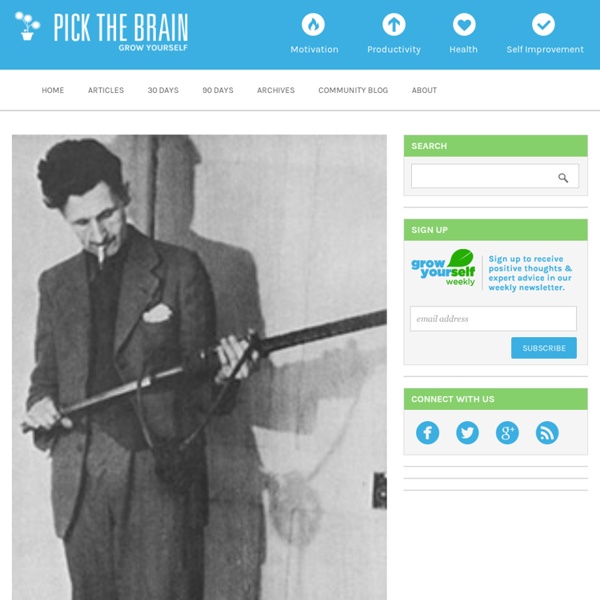Amanda Hocking, the writer who made millions by self-publishing online
When historians come to write about the digital transformation currently engulfing the book-publishing world, they will almost certainly refer to Amanda Hocking, writer of paranormal fiction who in the past 18 months has emerged from obscurity to bestselling status entirely under her own self-published steam. What the historians may omit to mention is the crucial role played in her rise by those furry wide-mouthed friends, the Muppets. To understand the vital Muppet connection we have to go back to April 2010. We find Hocking sitting in her tiny, sparsely furnished apartment in Austin, Minnesota. She is penniless and frustrated, having spent years fruitlessly trying to interest traditional publishers in her work. To make matters worse, she has just heard that an exhibition about Jim Henson, the creator of the Muppets, is coming to Chicago later that year and she can't afford to make the trip.
The Most Comma Mistakes
Draft is a series about the art and craft of writing. As I noted in my earlier article, rules and conventions about when to use and not to use commas are legion. But certain errors keep popping up.
How to avoid making mistakes in English
by Tomasz P. Szynalski © Tomasz P. Szynalski, Antimoon.com Learners make mistakes and reinforce them because they produce sentences (1) too carelessly or (2) too early. You will avoid mistakes if you follow a couple of rules:
Infographic: The Optimal Length for Every Social Media Update
How long should my tweet be? Or my blogpost? Or my headline? I ask this question a lot. It seems that others do, too.
Why Every Entrepreneur Should Self-Publish a Book
I’ve published eight books in the past seven years, five with traditional publishers (Wiley, Penguin, HarperCollins), one comic book, and the last two I’ve self-published. In this post I give the specific details of all of my sales numbers and advances with the traditional publishers. Although the jury is still out on my self-published books, “How to be the Luckiest Man Alive” and “I Was Blind But Now I See” I can tell you these two have already sold more than my five books with traditional publishers, combined. If you, the entrepreneur, self-publish a book you will stand out, you will make more money, you will kick your competitors right in the XX, and you will look amazingly cool at cocktail parties. I know this because I am seldom cool but at cocktail parties, with my very own comic book, I can basically have sex with anyone in the room.
How writers can refine their story, book ideas
More than 300 writers shared their ideas about writing at last weekend’s “Narrative Arc” conference, which Poynter co-sponsored. I delivered a keynote address and then shared a spot on four panel discussions. My favorite was titled “Revising Before Your Begin: Selecting, Defining and Refining Topics.” This turned out to be a timely topic for me.
Writing Online: Best Practices — Groundwire
West Coast firm transfers clients to experts in Plone hosting UPDATE Mar. 12th, 2013: The board at Groundwire asked us to share this official press release (PDF) to help explain what has happened. INDIANAPOLIS, Feb. 1, 2013 - Six Feet Up has acquired 110 Plone hosting clients from a partner in Seattle. Groundwire.org, an agency that helps non-profit organizations with their web strategy and development needs, has decided to exit the hosting business.
A Scientific Guide to Writing Great Headlines on Blogs, Social Media
Ever since we started Buffer a little over 2 years ago, people have been asking us about one question very specifically: How can I write great headlines for social networks and my blog? The topic is a very tricky one, as the accuracy for what works best is hard to nail down. Whilst we have some specific techniques that we are using for our own postings and article headlines every day, I thought looking at the most cutting edge research is definitely required. So I thought of combining all the research we’ve done for the Buffer social accounts and our blog as well as the best research out there and combining them into one comprehensive guide.
(More) tips for writing well (Austin Govella at Thinking and Making)
Published Wed, Jul 8, 2009 by Austin Govella. Updated Wed, Jul 8, 2009. As an editor, I’ve noticed several recurring bad habits you heathens would do well to disabuse yourselves of immediately. Almost without exception, these bad habits instantiate themselves as a series of stock phrases and constructions that reflect a lack of focus, a lack of fully developed argument, or the kind of intellectual laziness that sets in as you slog through your first draft. These things happen, That’s ok.



